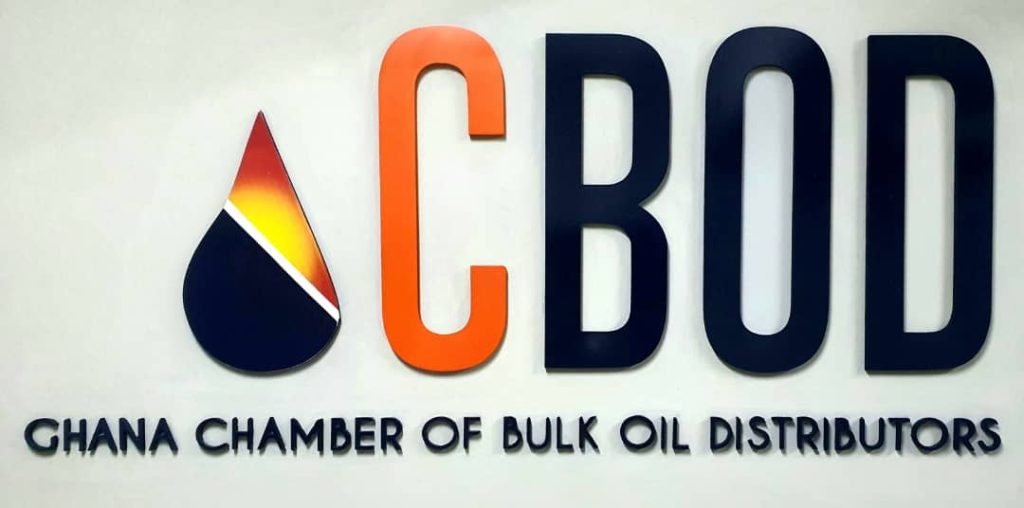The Chamber of Bulk Oil Distributors (CBOD) has issued a strong rebuke of the persistent disruption of Ghana’s Laycan import scheduling system, warning that continued regulatory breaches are driving up fuel prices and undermining market stability.
In a detailed press statement, the chamber called on the Ministry of Energy and Green Transition and the National Petroleum Authority (NPA) to restore order and transparency to the country’s petroleum import regime.
At the heart of the crisis is the Laycan schedule, a vital planning tool for petroleum cargo imports, jointly developed by stakeholders and published by the NPA.
However, according to CBOD, the schedule has been arbitrarily revised more than eleven times in 2025—four in the first quarter and seven in the second quarter—often without consultation.
“These frequent and unilateral changes have severely undermined operational predictability and imposed significant financial burdens on Bulk Import, Distribution, and Export Companies (BIDECS).”
Chamber of Bulk Oil Distributors (CBOD)

Each revision reportedly affects up to ten cargoes, resulting in cumulative delays of about thirty days per incident. Between January and June 2025, BIDECS incurred over $40 million in demurrage and related costs—expenses ultimately passed on to consumers at the pump.
CBOD estimates that inefficiencies related to the Laycan disruptions contributed between GHS 0.47 and GHS 0.60 per litre to the rise in fuel prices over the first five months of the year.
These added costs, the Chamber says, are “unfair and avoidable” and directly affect the Ghanaian public.
“This is not just an industry issue—it is a national economic issue that directly impacts the daily lives of Ghanaians.”
Chamber of Bulk Oil Distributors (CBOD)
Regulatory Breach Defies Presidential Directive

In what CBOD described as a “serious affront to regulatory integrity,” the NPA authorised the berthing of the vessel MT Marlin Ametrine on June 23, 2025—contrary to the official Laycan schedule and in violation of a presidential directive.
This move followed a formal CBOD petition submitted to the Presidency on June 12, which prompted a directive instructing the Ministry of Energy to act swiftly. Instead, the NPA’s latest action, according to the Chamber, has escalated the crisis.
“This action sets a dangerous precedent and risks delegitimising the entire scheduling framework on which the nation’s fuel security depends.”
Chamber of Bulk Oil Distributors (CBOD)
CBOD alleged that the Marlin Ametrine operation was facilitated by a group of Nigerian traders displaced by the Dangote Oil Refinery and working through politically connected intermediaries in Ghana.
“This represents a flagrant attempt to circumvent established protocols for narrow selfish interests, to the detriment of national energy security and market stability.”
Chamber of Bulk Oil Distributors (CBOD)
Call for Immediate Government Action

The Chamber called for swift reforms to restore order and accountability in Ghana’s fuel import regime. A key demand is the restriction of Bulk Import, Distribution, and Export Companies (BIDECS) that lack officially assigned Laycan slots from participating in discharges.
CBOD insisted that “entities responsible for disruptions must bear all associated financial penalties” to deter future violations and uphold discipline within the system.
CBOD further emphasized the need for transparency and stakeholder engagement in managing the Laycan schedule.
The Chamber asserted that any amendments to the schedule “must follow prior consultation with the Laycan Review Committee,” a process designed to ensure fairness and avoid arbitrary decision-making.
In addition, all emergency supply requests must be properly coordinated, clearly justified, and planned well in advance with input from all relevant actors in the sector.

To enhance compliance and restore confidence in the regulatory process, CBOD is also advocating for a greater oversight role.
The Chamber is urging the government to formally empower it “to coordinate and submit Laycan schedules to the NPA,” thereby ensuring that the allocation of berthing slots is done transparently, equitably, and in the best interest of Ghana’s energy security.
CBOD reaffirmed its commitment to protecting Ghana’s fuel security and maintaining a competitive, rules-based petroleum import system.
“We urge the Ministry of Energy and the NPA to act decisively, fairly, and without delay.”
Chamber of Bulk Oil Distributors (CBOD)
However, it warns that regulatory inconsistency is threatening operational stability and investor confidence.
READ ALSO: Mastercard and Access Bank Unveil Innovative Age-Segmented Card to Empower Ghana’s Youth



















